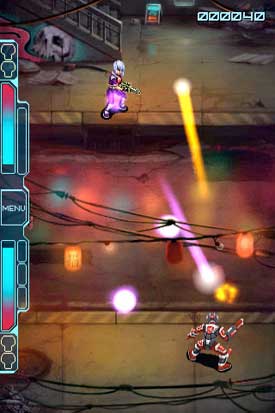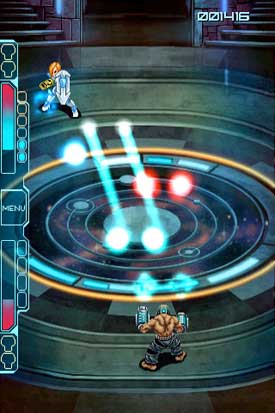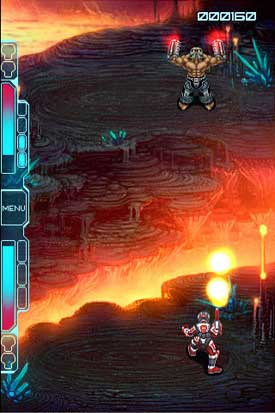
Between the mass-media attention given to the announcement of a new Ubisoft Studio, and the critical success of new titles from Capybara Games (as well as many other happenings I’ll surely be in trouble for neglecting to mention here), it’s safe to say that 2009 was an important year for recognizing Toronto’s growing role in the videogame industry.
It was also the year that indie game developer Little Guy Games opened for business, founded by former Capybara Games President Tom Frencel.
The studio’s first game, the shooter/fighter mix Battle Blasters released earlier this month for the iPhone and iPod Touch, and Tom was good enough to take time out to answer a few questions on two of my favorite topics – game development and my home city.

Jamie Love: Given your role as a founder and President of Capybara Games for nearly five years, I have to ask what brought about your decision to start a new company?
Tom Frencel: I wanted to get back to what I love which is actually making games rather than just managing a business. Starting a new, smaller company allowed me to do that.
Of course, the experience at Capy has been invaluable for me. The guys at Capy have been awesome to work with over the years. They are a super talented team and I am proud of what the studio has already accomplished.
JL: Battle Blasters keeps the tactile side of the iPhone fed using finger swipes to move your character and to fire and block shots from opponents.
How important is it to you to maintain that type of control for players rather than simply sticking a control panel on the screen to perform actions for them?
TF: Bill (the other designer and programmer on Battle Blasters) and I wanted to create a more organic interface for our game – one that felt natural on the touch screen. We wanted to stay away from simply superimposing a D-Pad and buttons on top of a touch screen.
Although this approach has a steeper learning curve, once players get it, it provides them with a much better and more immersive experience. Of course, there will always be players that would have liked to see an alternative D-pad based control system.

JL: Any interest in console development, or is your primary focus on the iPhone going forward?
It’s a market continually on the grow, but is there still a lot of space to explore it as a gaming platform?
TF: We have no plans for console development as of now. Of course, that can change, but as it stands we love developing for the iPhone. It’s a great gaming platform, fun to play on and develop for.
It’s extremely competitive as well, but we strongly believe that in the long run a quality approach is the right strategy for any platform.
JL: Government support for game development generally gets more attention when Ubisoft gets cut a big cheque, but I understand that the Ontario Media Development Corporation and Telefilm Canada have played a significant role in the development of your first title?
TF: Without Telefilm’s and OMDC’s support, making Battle Blasters wouldn’t have been possible. We feel extremely fortunate to have these programs available in Canada and Ontario. They can be the deciding factor between growing a successful studio, creating great original IP and franchises through which employment opportunities are created, and failing as a business due to lack of initial project funding.

JL: Rather than a final question, I thought I’d just open the floor to letting you tell everyone why my home city is a great place to develop games.
TF: First of all, the city is full of amazing indie talent. From small teams like Metanet and Jon Mak to larger studios like Capy and DrinkBox, the list of local talent goes on and on. It’s great to be surrounded by so many talented people.
Second, the talent pool in Toronto has not yet been fully exploited by big publishers, hence there is a lot of very talented people who would love to be making games for a living.
Finally, the availability of government programs can make the economics of creating a new IP more favorable for young indie companies and as I said before that can be the difference between not making a game and creating a successful franchise.
*Thanks to Tom Frencel for taking the time to talk with us.